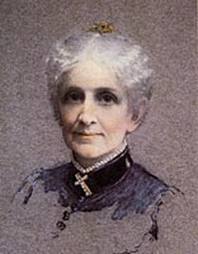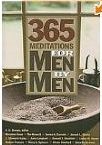5/10 Summary of our series on the Challenges to the Christian Faith with Cults
 So far in this series we have discussed the basic of what a cult is and how it gathers its members. To help us review, here are some of the important points.
So far in this series we have discussed the basic of what a cult is and how it gathers its members. To help us review, here are some of the important points.
The Christian ‘religion’ is based on Jesus Christ. If we know what He taught, then any false and twisted doctrines arriving in our mailboxes, or knocking on our door, would not sway us from His Truth.
The aim of this series is not for you to become an expert in cults or other religions. Rather, we want you to have an understanding of Biblical truth in order for you to face the challenges to our Christian faith.
We are not seeking to attack or ‘belittle’ a person’s beliefs in these sessions. However, what concerns us the most are cults masquerading as ‘Christian’. We must know what we believe and why, because false teachings are invading the church as well. How we need to know the Bible, in order to support even the basic beliefs of Christianity!
A. Jesus said that false prophets would come.
Jesus knew false prophets would come. Observing the heresies of the first five centuries after His ascension supports His teachings. Many of these same heresies are at the root of cults today. He warned us in Matthew 7:15:
“Beware of false prophets, who come to you in sheep’s clothing, but inwardly they are ravenous wolves.”
He knew that the reconciliation message He brought from Father God would be attacked, diluted, isolated and added to. We must be alert to those who come with a pleasant message on the outside but their inner life does not match. “You shall know them by their fruits”, as Matthew 7:16 points out.
It is easy to get caught up in someone’s promises, their ‘anointing’, or their ‘charisma’ without checking whether their character, doctrine or morals match their words. Jesus passed this test perfectly, His life reflected His teachings. He showed God’s heart, and love for people, by His actions and words. Again, He is our Example and our best Teacher!
B. So what is a cult?
A cult is any group that appears to support the basic principles of Christianity, but then deny or change one or more of the fundamental Biblical doctrines (teachings) of traditional Christianity. They usually do this by adding their own teachings.
1. Usual topics that are added to, or totally changed.
Some of these changes include: the deity of Christ, the purity of His blood, the place and Person of the Holy Spirit and mankind’s ability – or need for – personal salvation. Some kind of ‘good works’ is often added. This makes human effort the way to gain God’s righteousness and approval – rather than faith in Jesus Christ.
2. The cult is usually built around one dynamic, charismatic person.
S/he will use a corrupted version of the Bible, claiming their version was given supernaturally and all other Bibles are dismissed. Dr. Walter Martin, a recognised expert in this area, defines a cult as “a group of people gathered around someone’s misinterpretation of the Bible!” (Fatal Faith, page 6)
and all other Bibles are dismissed. Dr. Walter Martin, a recognised expert in this area, defines a cult as “a group of people gathered around someone’s misinterpretation of the Bible!” (Fatal Faith, page 6)
3. Different doctrines
Another author, James Sire, states a cult is “any religious movement that is organizationally distinct and has doctrines and / or practices that contradict those of the Scriptures as interpreted by traditional Christianity … and as expressed in such statements as the Apostles Creed.” (Fatal Faith, page 6)
C. So how do cult groups get started? Most cult groups are formed by this pattern:
1. They begin as a small group, which breaks away from some established Christian body.
The breakaway groups are always sincere to follow God’s will and to see a better world.
2. Special revelations and insights are claimed.
‘Revelations’ are given to the leader/s of the breakaway group, often through dreams, visions or even an angelic visit. Their view of the world, authority and life are all changed.
3. The leader/s adopt these special revelations and make them into a law for the group to follow.
 Special insights are only available to their initiates and the ‘brainwashing’ process continues. At this point, the group is usually in isolation and judges outside authorities, systems and the world they see around them.
Special insights are only available to their initiates and the ‘brainwashing’ process continues. At this point, the group is usually in isolation and judges outside authorities, systems and the world they see around them.
4. Obedience becomes compulsory as “they are the only ones with the truth”.
A system of reporting on one another adds more isolation. Any resistance is punished by humiliation, rejection or worse.
5. The brainwashing process continues as the whole group seems to unite behind the leader/s.
Traps are set for anyone trying to escape their control. Those who do manage to leave the group are firmly renounced as “going to hell’, completely ostracised, cursed or worse.
D. If cults are so dangerous, why do people join and stay in the cult?
1. Cult groups target idealistic people.
Most recruitment activities are aimed at young, idealistic, spiritually aware people searching for meaning in their lives. Large percentages come from some dysfunctional family background, so they are seeking an identity and a place to belong and be accepted. Having good family structures, reliable authority figures and positive Christian role models helps guard against cult’s deceptive claims.
2. Most cult members have some Church Background.
According to Dr. Walter Martin, 80% of cult members come out of traditional Christian churches. (Fatal Faith, page 42.) Their church experience often leaves them disappointed, disillusioned and unfulfilled. The church promised and didn’t deliver. Cults waste little time on those with a firm faith in Jesus or those with a solid knowledge of the Bible.
3. Cults emphasise experience over doctrine
Most cults and occultist groups emphasise experience over doctrine; they are mystical rather than rational. They encourage a sense of family, of identity and intimacy. Most human targets have not developed the ability to think for themselves, but see the miraculous as God’s stamp of approval on the leader/s. They have not learned to look below the surface.
E. How do we know if we are in a cult?
1. Do they add their own special revelations, or are their doctrines elevated above the Bible?
Have additions and selective deletions made their version a special interpretation of basic Christian doctrines?
“Deceitful workers, transforming themselves into the apostles of Christ. And no marvel, for Satan himself is transformed into an angel of light.” 2 Corinthians 11:13-14.
2. Do they deny the Bible’s view of God, the deity of Jesus and the work of the Holy Spirit?
Do they replace Him with another or say His mission is incomplete and must be added to by another person? Remember, the average trained cult member will know their terminology very thoroughly – often better than the average Christian.
3. Do they add more requirements for Salvation?
Do they have a list of added things to do to get your name in heaven? Is outward behaviour part of the elite’s position?
4. Are there divided loyalties or tensions in choosing between doing God’s will and the will of the leader/s?
Are there added controls to keep people “in line”? Is there limited contact between families, married couples or the outside world not found in the Bible? Be aware of those who speak negatively about conventional Christianity and emphasize their spiritual power/s.
5. Does their fruit match their doctrinal, ethical and moral stand?
Is their teaching a reality in their private and public life? Do they set one standard for others and another for themselves?
Many Christians have been drawn into cults because of their ignorance of basic Scripture. Other people have chosen to enter a cult group based on what that group can ‘do’ for them – their belonging needs and living in a caring community. Others join groups based on the cult’s ‘loving’ attitude towards others. None of these are Biblical reasons for turning away from “….. the faith delivered unto us”.
E. Conclusions:
As we have seen, truth is important. However, sincerity is not the same as having the truth. Since our life on Earth and our belief system will determine our eternal lifestyle, what we believe now must be based on the Bible and the witness of the Holy Spirit within us.
If any group or organization claims: equal or greater authority then the Bible, denies that Jesus is begotten of God, come to Earth in the flesh, was crucified, arose on the third day and is returning in the flesh to rule, be very cautious. Test their message, insist on evidence about their new revelations, terms and amazing insights. However, the best evidence is your own witness of what the living Jesus has done in your own life. Don’t be fooled by pretty pictures or smooth talking men “… dressed in sheep’s clothing… but inwardly are ravenous wolves”.
F. Resources used in this Study:
Aldrich, Willard M. Dr. The Battle for Your Faith, Multnomah Press, Oregon, USA,1975.
Anfuso, Francis. Booklets: “Christianity vs. World Religions” & “Who’s that Knocking on my Door?”, “What we Believe and Why we Believe it“, California, USA, 1981.****
Boyle, Tony. “Major Cults”, Life Ministry Bible College, Chirnside Park, Victoria, Australia, 1988.
Christian Resource Series, author unknown. “The New Age” pamphlet, Texas, USA, 1990.****
Conner, Kevin J. The Foundations of Christian Doctrine, Acacia Press, Blackburn, Vic., Australia, 1980. ****
House, Wayne H. Charts of Christian Theology and Doctrine, Zondervan Publishing House, Michigan, USA, 1992.
LaHaye, Tim. The Battle for the Family, Fleming Revell Publishing Company, New Jersey, USA, 1979
LaHay, Tim. The Battle for the Mind. Fleming Revell Publishing Company, New Jersey, USA, 1980. ****
McDowell, Josh & Stewart, Don. Understanding the Cults, Campus Crusade for Christ, California, USA, 1983.
Martin, Walter. The Kingdom of the Cults, Bethany House, Minnesota, USA, 1985. ****
Meath, John. “The Relevance of Origins and the Validity of Genesis”, Life Ministry Bible College Notes, Victoria, Australia, 1988.
Oxley, Pastor Hal. Life Ministry Bible College Notes, “End Time Events”, Chirnside Park, Vic., 1988
Stevens, Selwyn. Fatal Faith. Jubilee Ministries, New Zealand, 1992. ****
Stevens, Selwyn. Essentials for Faith. Jubilee Publishers, Wellington, New Zealand, 1992.****
Stevens, Selwyn. The New Age, Jubilee Publishers, Wellington, New Zealand, 1992.****
(HIGHLY RECOMMENDED READING: ****)
This finishes the section on our blog for the major challenge of the Cults of the Christian faith. However, there is another challenge we wish to cover in our next post, that of ‘Counterfeit Christianity’. This is where religion, ‘churchielogy’ and legalism has replaced the faith delivered to us by the Lord Jesus Christ. Getting tangled in this challenged leads to people to remark: “Jesus I love but the church … not so much!”
Join us then,
Susanne Fengler, Blog Author
www.christianfoundations.jesus-treeoflife.info/blog

Tags: Summary of the Cults
Filed under: Challenges to the Christian Faith, Susanne's top posts




Leave a Reply